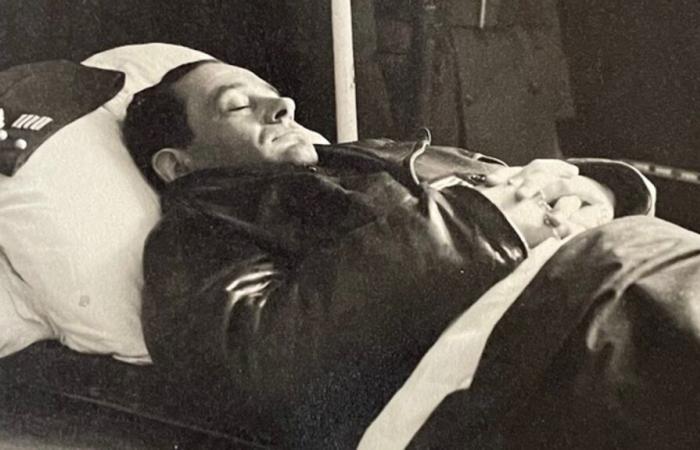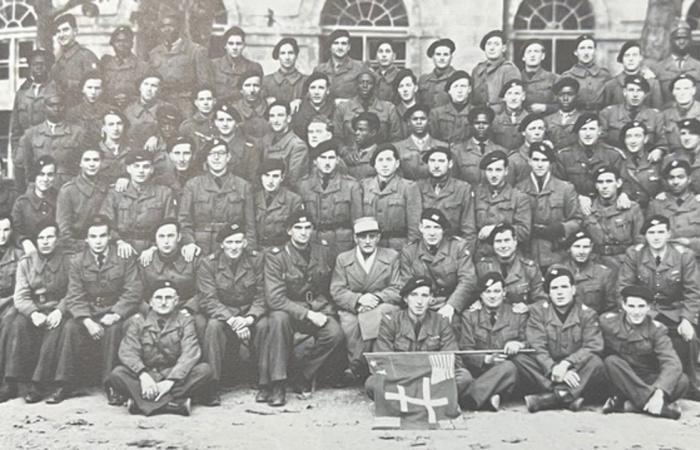Colonel Valin de la Vaissière died in dramatic circumstances on December 19, 1944, in Auray (Morbihan). By a tragic irony, this man of action who fought the Germans to liberate the country, is assassinated by one of his subordinates.
Thérèse Gallo-Villa carried out the investigation to understand. We must first set the context. “Valin, who has connections with the Minister of Air, the communist Charles Tillon, managed to create a unit integrating the former FFI of the department. Rather than accepting a position in the ministerial cabinet, he prefers to remain at the head of his men. »
November 22, 1944, 4 o’clocke air infantry regiment (RIA) joined the Lorient pocket still held by the Germans. It is made up of two battalions, that of Vendôme led by Commander Charles Verrier, and that of Blois with Commander Judes at its head.
Commander Charles Verrier commanded the Vendôme battalion. He died alongside Colonel Valin.
© Photo provided by the family.
On the morning of December 19, shortly before 10 a.m., Auguste Schneider presented himself at the Du Guesclin barracks in Auray where he had an appointment in Commander Verrier’s office. Valin is present. A few minutes later, a voice rings out and several shots ring out. Schneider has just shot the two officers with his Mauser pistol before committing suicide!
A man known to be an alcoholic, violent and sanguine
For several weeks, Second Lieutenant Schneider had been champing at the bit in Vendôme where he was responsible for training recruits in the Rochambeau district. Thérèse Gallo-Villa has reconstructed the itinerary of this former hairy, strong-headed, bottle-loving, violent and sanguine man. “Originally from the Paris region, he had a very chaotic journey, his parents committed suicide when he was 4 years old. After fighting in 14-18, he received three convictions for embezzlement. »
The Vendôme battalion was made up of former FFI and led by Commander Verrier.
© Photo from the book by Raymond Casas, “The Volunteers of Liberty”.
Schneider arrived in Loir-et-Cher in 1943 and joined the Resistance in the Mondoubleau sector. In the fall of 44, he was asked to stay in Vendôme rather than follow the regiment to Brittany. Some soldiers may have increased pressure by pointing out a « injustice ». It was to ask for explanations about his sidelining that he had a meeting with his bosses. “Valin and Verrier had to inform him that his previous embezzlement and the abuses of which he was suspected were the essential reason for the refusal to bring him to the front, and not the age limit which would have reached him. Schneider couldn’t stand it and preferred to die rather than suffer dishonor. »
If a vibrant tribute is paid in Blois and Vendôme to the two murdered officers, the drama will ultimately have few echoes and the investigation will be quickly closed to preserve the reputation of the army even though the war was far from over (Hitler had just launched a counterattack in the Ardennes). But the memory of Valin and his deputy would nevertheless survive through time.







